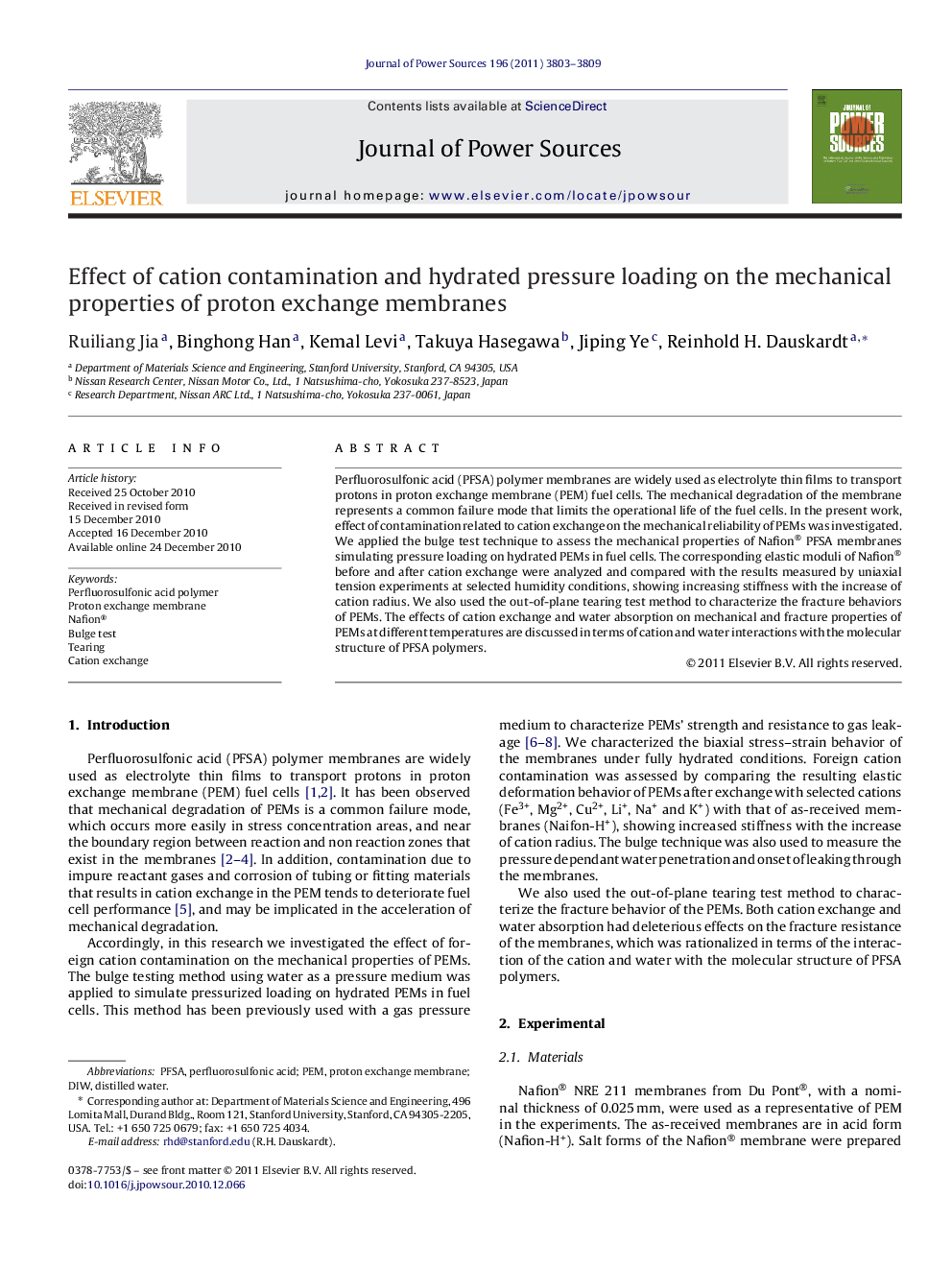| Article ID | Journal | Published Year | Pages | File Type |
|---|---|---|---|---|
| 1289246 | Journal of Power Sources | 2011 | 7 Pages |
Perfluorosulfonic acid (PFSA) polymer membranes are widely used as electrolyte thin films to transport protons in proton exchange membrane (PEM) fuel cells. The mechanical degradation of the membrane represents a common failure mode that limits the operational life of the fuel cells. In the present work, effect of contamination related to cation exchange on the mechanical reliability of PEMs was investigated. We applied the bulge test technique to assess the mechanical properties of Nafion® PFSA membranes simulating pressure loading on hydrated PEMs in fuel cells. The corresponding elastic moduli of Nafion® before and after cation exchange were analyzed and compared with the results measured by uniaxial tension experiments at selected humidity conditions, showing increasing stiffness with the increase of cation radius. We also used the out-of-plane tearing test method to characterize the fracture behaviors of PEMs. The effects of cation exchange and water absorption on mechanical and fracture properties of PEMs at different temperatures are discussed in terms of cation and water interactions with the molecular structure of PFSA polymers.
Research highlights▶ Bulge test is used to simulate hydrated pressurized loading on PEMs in fuel cells. ▶ Water absorption reduces elastic moduli and fracture resistance of PEMs. ▶ Elastic moduli of PEMs increase with the increasing radius of cation exchanged. ▶ Cation contamination makes PEMs more brittle and reduces fracture resistance of PEMs.
